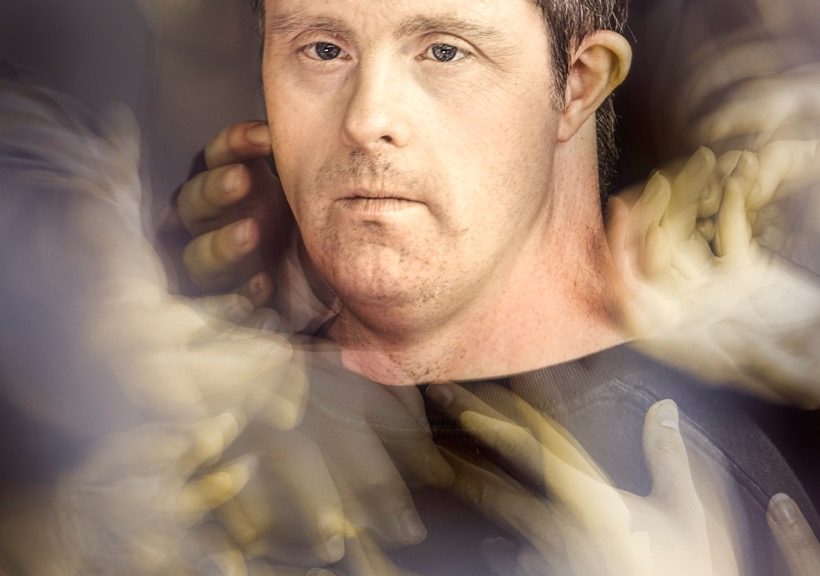 (4.5 / 5)
(4.5 / 5)
Dance choreographer Karol Cysewski has successfully designed an immersive experience through dance and theatre that conveys the unequal healthcare treatment people with learning disabilities receive, which results in thousands of avoidable deaths every year. (My interview with Cysewski is available here.)
The strength of the show comes from the careful assembling of different elements to create powerful tableaux of patients who are examined, manipulated, neglected. At the centre of the scene and yet unheard. The actors from Hijinx Theatre add veracity to it. Aaron Relf is neurodivergent, Andrew Tadd and Gareth Clark have Down syndrome. Relf conveys a subtle anguish, Tadd has a strong presence on the scene, and Clark plays with the dancers with ease.
The skillful dancing by Gaia Cicolani, Kseniia Fedorovykh, and Harlan Rust employs a range of movements, gentle, precise, then deforming of faces and forms, to frantic and convulsive. The excellent sound design by Sion Orgon plays a key role in creating dark and haunting scenes where dancers and actors come together and apart.
Very powerful are also the set design by Ruby Brown and the lighting design by Sophie Moore immersing us in an uncomfortable mist, where pools of light and hospital curtains play alongside actors, dancers, and sound. The curtains get opened and closed to show us the pain, to cover or cover up the neglect, to signify death.
Yet the show is not perfect, largely due to a didactic and weak text. Most might find this to be a minor flaw, yet I believe it is an element that detracts from the power of the piece and that can be reviewed. The text is too wordy lacking poignancy. Numbers and statistics paint a general picture devoid of the personal concrete experience of a character. Art conveys universal truths through the particular experience of characters.
Paradoxically, as someone who has worked in the third and public sector, I know how important it is to ensure the voice of disabled people is included in reports and campaigning material through quotes or interviews. The medical and social context for the show could have been dealt with in the programme or in a prologue. The weak text makes the show more haunting than moving, but well worth watching.

